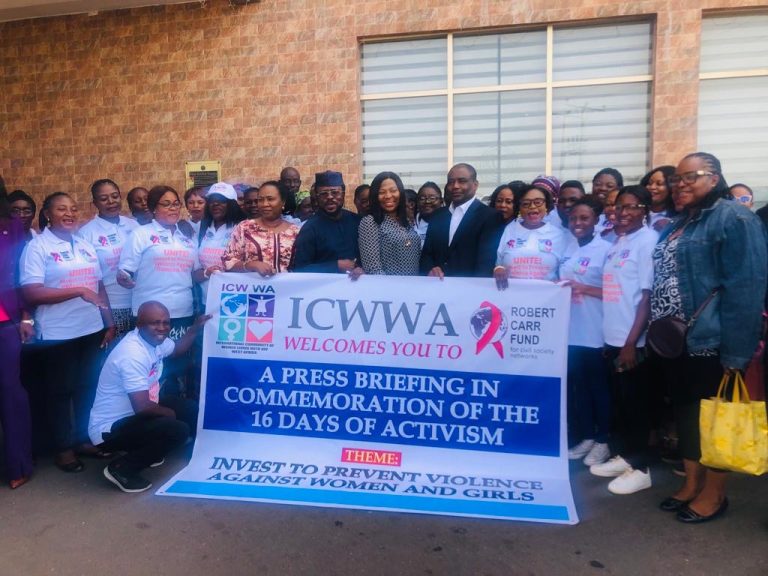…..International community, others seek more investment to end GBV
By Justina Auta
The International Community of Women Living with HIV, West Africa (ICW-WA), UNAIDS and others have advocated for more investment and collaboration to end Violence against Women and Girls (VAWG).
They made the call at a news conference as part of activities to observe the 16 days of activism against Gender Based Violence (GBV) in Abuja on Thursday.
Mrs Helen Alphan, Board member, ICWWA-Nigeria, said that women and girls were vulnerable, which exposes them to all forms of violence, hence the need for government to invest in ending the menace.
“We want the government to support us, we have been collaborating, but we want it to be intensified in eliminating total violence against girls and women.
“This year’s theme is invest to stop violence against women. So we want the government to invest, bring us on board to do the needful,” she said.
Dr Yinka Falola-Annoemuah, Acting Director, Policy and Planning Coordination, National Agency for the Control of AIDS (NACA), said they mobilise support to ensure people access care in cases of rape, violation and maltreatment.
Falola-Annoemuah, reiterated commitment towards ending HIV/AIDS as a public health concern, stopping the transmission of the virus and meeting the global 2030 target.
She said: “we need to continue with the campaign on investment and prevention.
“We will be engaging more closely with community actors, CSOs to ensure we get action and stop stigma, discrimination and violation among women,” he said.
Mr Leopold Zekeng, Country Director, UNAIDS, while emphasising the role of communities towards ending GBV and HIV/AIDS, reiterated their commitment towards ending it in the country.
“We cannot get to epic control if we don’t empower and support the role of communities.
“This is something we need to do every time because of the intersection between GBV and HIV vulnerability and acquisition.
“Evidence suggests there is a link because GBV, which will increase vulnerability and HIV acquisition,“ he said.
Zekeng said there was a need to invest, advocate and mobilise more resources to eliminate GBV, as well as promote girl-child education and women empowerment.
Dr Adebobola Bashorun, National Coordinator, National HIV/AIDS, Viral Hepatitis and STIs Control Program (NASCP), Federal Ministry of Health reiterated government support in eliminating GBV.
He said: “The government is poised to ensure every person is protected and prevented socio-economic and physical hazard including issues around GBV.
“We are committed towards addressing issues of women, increasing access to healthcare services.
“We need to reduce the stigma and discrimination against child labour, anything that can lead to the transmission of HIV infections.”
Desby Collins Kalu, representing Institute of Human Virology (IHVN), said: “Let us ensure we protect the rights of people around us, and that we do not stigmatise those going through abuse.
“Let us all support each other and channel survivors to appropriate support systems and be the support systems ourselves,“ he said.
Other highlights were the conferment of awards and money to outstanding personalities for their supports, especially at the community level towards ending GBV and advocacy to end HIV/AIDS transmission.


